Proton Therapy Cost in India made affordable for you! Experience the benefits of advanced cancer treatment with proton therapy, offered by expert oncologists at some of the best medical facilities in India, all at a fraction of the cost.
Recovery Time
2 Months
Success Rate
85-90%
Hospital Stay
OPD Basis
Treatment Type
Radiation Treatment
Home Treatments Radiation Oncology Proton Therapy
Are you suffering from cancer and seeking successful treatment options at an affordable cost? Proton therapy is an advanced and innovative option for treating cancers such as esophageal cancer, head and neck cancers, gastrointestinal (GI) cancer, and brain tumors as well.
Proton therapy is a radiation treatment that uses beams of protons to destroy cancer cells while minimizing damage to healthy tissues.
In other countries, the cost of excellent medical care can be very high, adding financial stress to an already difficult situation, especially with complex procedures, and without proper care.
Get world-class care today!
India provides the best treatment options for cancer at an affordable cost, through advanced hospitals, and experienced and board-certified oncologists who provide high-powered energy to treat cancer and some non-cancerous tumors.
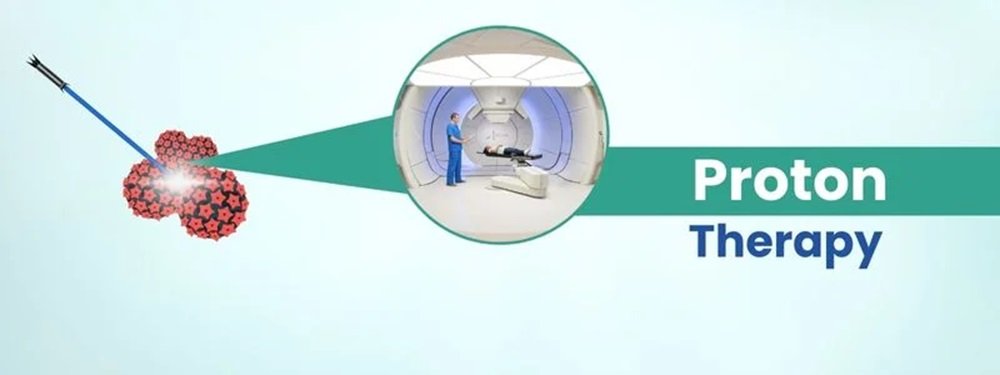
Proton therapy is a type of radiation therapy and cancer treatment in which a machine helps direct the flow of positive charge, high-energy particles known as protons toward tumors. Additionally, protons help destroy tumor cells while preserving their nearby tissues.
Proton therapy was first thought of in the early 1950s by a physicist named Robert R. Wilson. He suggested using protons to treat cancer, but at that time, the technology was not advanced enough to make it possible. It took several decades before proton therapy could be used in hospitals. The first patient received proton therapy in 1954 at the Lawrence Berkeley National Laboratory in California. The treatment was successful, and over time, proton therapy has improved and become an important method for treating many types of cancer.
Additionally, in 2018, the Apollo Proton Cancer Centre (APCC) became the first proton therapy center in South Asia. With advanced technology and highly skilled doctors, this center has been helping patients from all over the world receive the best cancer treatment options using proton therapy.
Protons help to release most of their energy at specific parts inside the body and can match the shape of the tumor. This process manages to direct more radiation exactly at the tumor, delivering more energy to destroy the cancer while protecting nearby healthy tissue.
Protons treat tumors by giving a low dose of energy to healthy tissue. Then, they release a strong burst of energy into the tumor. After this, they stop working completely. To make sure the entire tumor is treated, more protons are sent in at lower doses and protons can fully target the tumor while keeping the dose to nearby healthy tissue low.
Proton therapy is performed to treat cancer and noncancerous tumors, and it can be used depending on specific conditions. It may be used in conjunction with other treatments like surgery and chemotherapy.
Proton therapy can be used if the cancer remains or comes back even after X-ray radiation.
Passive Scattering Proton Therapy
This method helps deliver proton radiation therapy by spreading the proton beam. It utilizes materials like metal filters to create a wider beam that can cover a larger target area, allowing for a more uniform distribution of the radiation dose across the tumor volume.
Pencil Beam Scanning (PBS), Intensity-Modulated Proton Therapy (IMPT)
It is another technique in proton therapy where a narrow, focused beam of protons is precisely scanned across the tumor area to deliver radiation accurately to the target while minimizing damage to the nearby healthy tissues.
Proton therapy is regarded as an innovative treatment option for cancer due to its ability to target tumor cells while preserving nearby healthy tissue. Moreover, this method has minimal side effects compared to traditional radiation therapy, especially in treating cancers near organs such as the brain, heart, and spinal cord.
Proton therapy helps to treat:
Proton therapy is an advanced form of radiation treatment specifically designed for targeting tumors with accuracy. Unlike traditional radiation therapies, proton therapy delivers energy directly to the tumor with less damage to the surrounding healthy tissue. This targeted process makes it a highly effective option for treating various types of cancer.
Differences Between Proton Therapy and Traditional Radiation Therapy are as follows:
Protons have a special feature called the Bragg peak, where they deposit most of their energy directly at the tumor site with minimal exit dose. This process helps for maximum damage to cancer cells while carefully protecting nearby healthy tissues.
X-rays release energy as they travel through the body, impacting both the tumor and the nearby normal tissues, which can lead to more side effects.
When you meet your cancer care team, your doctor will explain the treatment options that are best for your type of cancer. Then, you can decide which option works best for you.
Proton therapy can be especially helpful for:
The cost of proton therapy is affordable compared to other countries, including the types of procedures, diagnosis, and post-operative care.
Cost Component | Details | Estimated Cost in USD |
Pre-operative Consultation & Diagnosis | Consultations, X-rays, MRI scans, and blood tests. | 600 USD |
Treatment Costs | Includes surgeon fees, hospital stay, and type of treatment. | 15000-55000 USD |
Rehabilitation and Follow-up | Physiotherapy sessions, medications, supportive devices, and follow-up visits. | Variable for procedure |
The factors affecting proton therapy costs in India are different from one person to another person depending on various factors such as:
Tests such as PET scans, CT scans, and MRIs are necessary to diagnose and understand the stage of the cancer. Costs depend upon the type of test and the facility.
Experienced oncologists charge more, but their capability can improve your results, decrease complications, and provide good treatment.
More complex cases may need additional treatment sessions and therapies which can increase costs.
Advanced techniques like pencil beam scanning (PBS) and intensity-modulated proton therapy (IMPT) can cost more, but they provide better treatment.
If you have other health issues like diabetes or heart problems, the cost will go up due to extra tests, a longer hospital stay, and more medications needed.
Proton therapy facilities require a lot of money, and the latest equipment, like cyclotrons along with the necessary infrastructure, and the use of advanced technology can highly increase the cost of overall treatment.
Your treatment for cancer in an accredited hospital and performed by skilled and board-certified doctors and qualified medical staff is a crucial factor that impacts overall treatment cost.
The length of proton therapy treatment depends on the type and stage of cancer. Usually, treatment lasts several weeks with daily sessions. The total number of sessions affects the overall cost of treatment, which includes fees for doctors, equipment use, and maintaining the facility.
Fill in your details and we'll get back to you soonGet Free Treatment Quote
Country | Cost Structure |
India | 15000-55000 USD |
United States | 90000-120000 USD |
Germany | 70000-90000 USD |
Turkey | 65000-75000 USD |
◾Key Takeaways
✅ Affordable Treatment Costs: India delivers reasonable options for proton therapy, such as radiation with highly skilled oncologists and radiation therapists, advanced facilities, and making quality cancer care accessible to international patients.
✅ Advanced Medical Technology: Indian hospitals are equipped with advanced technology and have modern infrastructure, providing world-class care comparable to the international level at more affordable prices.
Proton Therapy cost
Treatment Name
Estimated Cost
Proton Therapy 15000-55000 USD
The best destination for medical tourism is India, because of its outstanding healthcare services where patients come from around the world for cancer treatment, and you can be assured that you are in safe and skilled hands when you choose cancer treatment in India.
India has highly skilled radiation oncologists and radiation physicists who provide thorough and effective care for cancer patients.
Hospitals use advanced imaging and treatment tools, such as PET scans, CT scans, and targeted therapies, for accurate treatment.
Indian hospitals provide full support, such as diagnosis and therapy, covering all treatment features.
Doctors create the best treatment plans for every patient's cancer stage and health, which can improve recovery.
Patients receive quality care at reasonable costs compared to other countries, making the best treatment without compromising quality.
More people can now travel to India to get affordable proton therapy and this option helps patients from around the world to access this treatment.
New technology has improved proton therapy, making it more accurate, and effective. The formation of smaller proton therapy systems, like pencil-beam scanning has lowered treatment costs which helps more people get the care they need.
Partnerships between hospitals, research groups, and companies have played an important role in lowering the cost of proton therapy, they have improved treatment methods and made costs more affordable.
Outstanding cancer hospitals in India offer complete care, including psychological support and counseling, to assist patients with their physical, emotional, and social well-being.
India has skilled radiation oncologists specialized in performing targeted radiation and proton beam therapy. They provide effective, the best treatment using advanced techniques for each patient.
Beds: 500
New Delhi
Beds: 400+
Faridabad
Beds: 106
New Delhi
Beds: 495
New Delhi
Beds: 504
Noida
Beds: 220
Faridabad
Beds: 400+
New Delhi
Beds: 250
New Delhi
Beds: 200
New Delhi
Beds: 550
Gurugram
Beds: 370+
Ghaziabad
Beds: 38
New Delhi
Beds: 150
Gurugram
Beds: 150
Chennai
Beds: 750
Mumbai
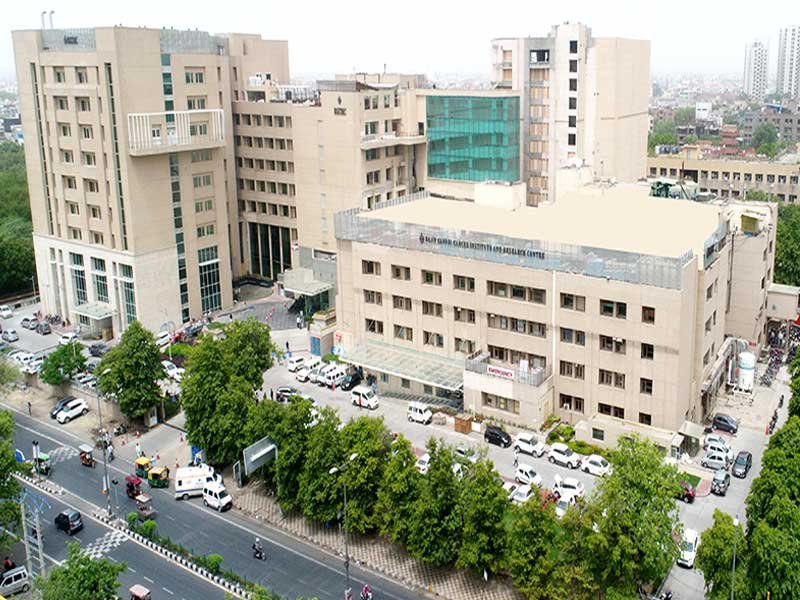
Rajiv Gandhi Cancer Institute and Research Centre
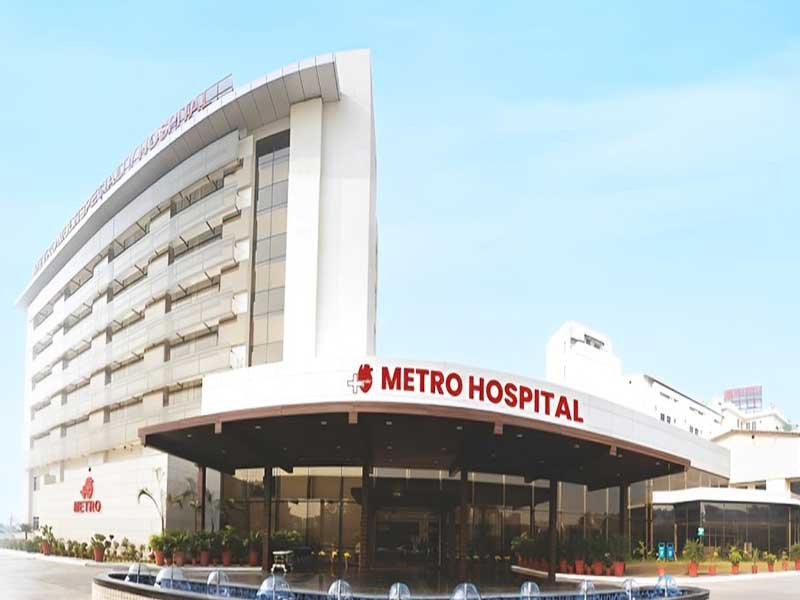
Metro Heart Institute with Multispecialty

PSRI Hospital

Batra Hospital & Medical Research Center
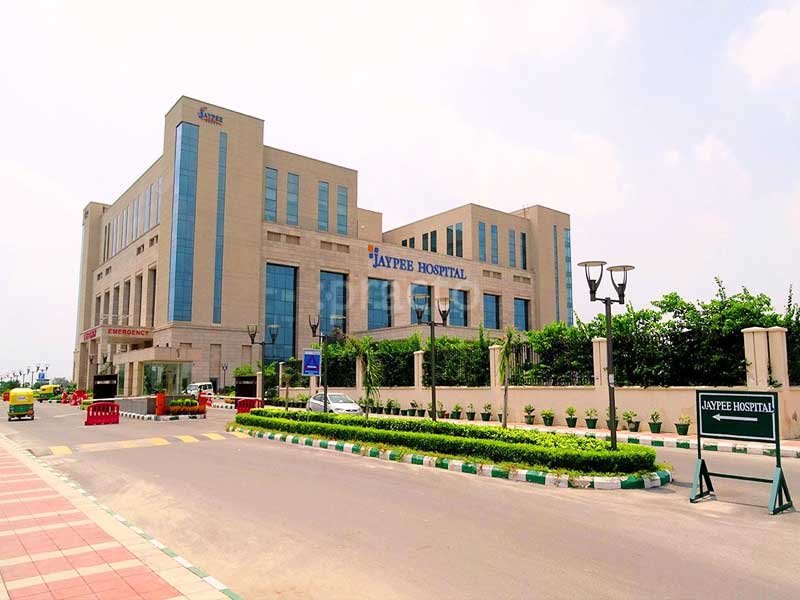
Max super speciality hospital sec-128 Noida

SSB Heart And Multispecialty Hospital

Max Super Speciality Hospital Patparganj

Primus Super Speciality Hospital

Medeor Hospital Qutab

Artemis Hospital
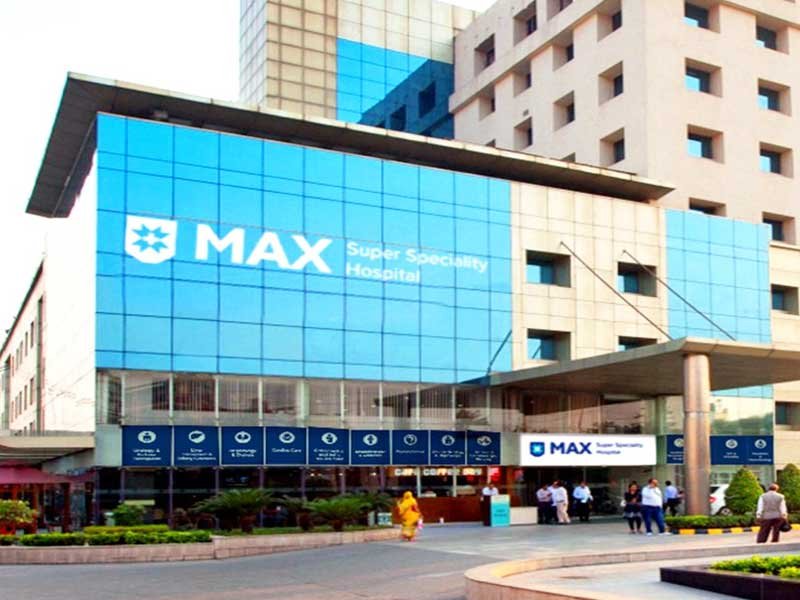
Max Super Speciality Hospital Vaishali

Fortis La Femme Greater Kailash

SHALBY Sanar International Hospitals
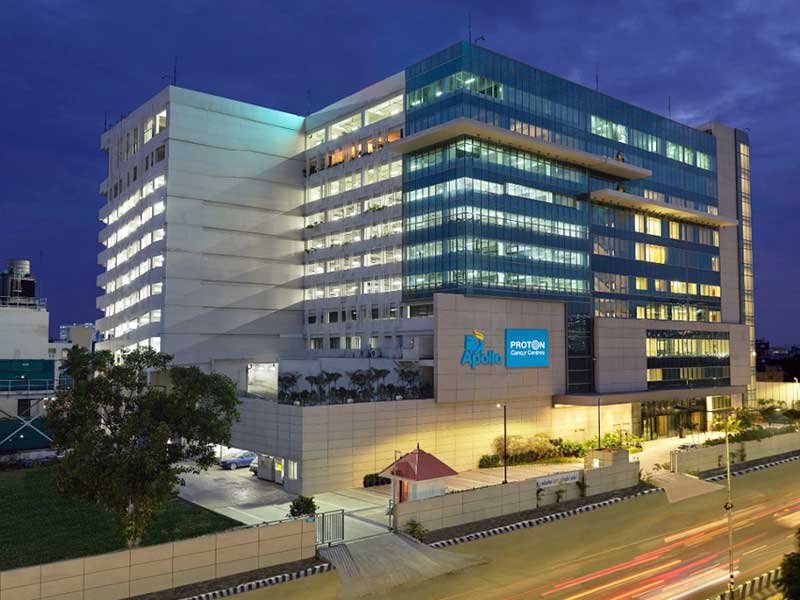
Apollo Proton Cancer Center, Chennai

Kokilaben Dhirubhai Ambani Hospital, Mumbai
Indian hospitals that provide proton therapy are recognized for their skilled specialists, advanced technology, and high-quality care, delivering complete diagnosis and effective treatment options for international patients.
Necessary diagnostic tests
Before your treatment, your doctor may suggest diagnostic tests to examine the stage of your cancer. These tests help plan the best treatment approach. Some common tests are listed below:
Tests | Description |
CT Scan | CT scan helps to create a 3D image of the cancer. |
MRI Scan | This test uses magnetic and radio waves to form images inside your body. |
PET Scan | It is an imaging test used to see detailed images inside the body. |
🟢Do’s Before Surgery
✅ Proton therapy can make you feel tired, so you need to take proper rest.
✅ Eating a healthy and balanced diet will help you stay strong and fight against infection.
✅ Drink plenty of water because it is important to help you prevent side effects.
✅ Your doctor suggests medications to help side effects of radiation therapy, so it's important to take medicines on time.
🔴Don’ts Before Surgery
❌ Proton therapy is a very effective cancer treatment, so it’s important to complete your treatment as prescribed.
❌ You should avoid smoking because it can irritate the skin in the area being treated and make side effects worse.
❌ You must avoid alcohol because it also irritates the skin and makes side effects worse.
❌ If you see any side effects, you must go to your doctor. There are many types of treatments to help with side effects.
Proton therapy is a type of cancer treatment that uses a machine called a cyclotron to send a high-energy beam of protons to a tumor. This treatment is non-invasive; there is no surgery involved, and patients can usually go about their daily activities after treatment.
Generally, patients receive proton therapy about five times a week, over several weeks or months, depending on their condition. Each session is about 30 to 45 minutes, but the actual proton therapy only takes about a minute.
Before starting proton therapy, a CT or MRI scan is done to create a 3D map of your tumor. These tests help doctors carefully plan the treatment to target the tumor with the right dose of proton energy while avoiding healthy tissues.
The doctor uses a device to keep the patient still during the session, then the robotic table can make tiny adjustments to ensure the tumor is perfectly positioned for the treatment.
A surface guidance system (VisionRT) helps position the patient and monitors any movement during the session. Before the proton beam is delivered, a built-in CT scanner (cone-beam CT) checks the position of the patient. If any adjustments are needed, the robotic table makes corrections.
When everything is in place, the proton beam is activated. The high-energy protons directly focus on the tumor, targeting it while being careful of the nearby healthy tissues.
Hospital Stay and Recovery Time
There is no need to stay in the hospital because it’s a session-wise process, and the recovery time is 2 months.
The success rate of proton therapy in India is 85-90%.
The most important benefit of proton therapy is that it targets the tumor more accurately, which means it exposes less healthy tissue to radiation. At last, the side effects that often happen with regular radiation therapy are reduced.
Complications of proton therapy are as follows:
Why Choose Mejocare for Proton Therapy in India
✅ Experienced Oncologists: We connect you with highly skilled radiation oncologists, and radiation physicists who have over 25 years of experience, ensuring high-quality treatment, and reliable care.
✅ JCI/NABH Accredited Hospitals: We partner with hospitals equipped with the latest technologies, including robotics, machine learning, and advanced diagnostic and therapeutic tools. These advanced facilities offer complete and personalized care.
✅ Additional Benefits: We provide quick responses, accurate cost estimates, accommodation in India, assistance with medical visas, and priority scheduling with doctors. Additionally, we make your arrival in India peaceful, with airport pickup, hotel transfers, and support during your hospital stay, ensuring a smooth experience.
Proton therapy helps to treat patients with cancer and noncancerous tumors. They found that proton therapy lowers the risk of second cancer, and patients who are seeking treatment can come to India for affordable treatment options.
Disclaimer
The information provided in this article is for general advice and does not represent an exact cost estimate. For personalized advice, connect with India’s leading doctors through Mejocare. Contact us today for expert assistance.

Medically Reviewed By
QualificationsMBBS, DTMU University, Georgia,Radiation Oncology Resident at Burdwan Medical College and HospitalDr. Aryan Malhotra is a skilled and caring doctor. He is a Radiation Oncology Resident at Burdwan Medical College and Hospital. He treats people with cancer and works closely with patients during their treatment.He completed his MBBS from David Tvildiani Medical University in Georgia. He has passed the USMLE... Read More
The average cost of Proton therapy in India is between 15000-55000 USD.
The success rate of Proton Therapy in India is around 85-90%.
Proton therapy is often administered in an outpatient setting, with patients visiting the facility for each appointment and leaving to go home afterwards.
The recovery period after proton therapy depends on the intensity of the treatment and the individual response of the patient. Some common side effects of proton therapy include fatigue, skin irritation, nausea, and hair loss in the treated area. These side effects are usually mild and temporary and can be managed with medications and supportive care.
Potential side effects of proton therapy include Mucositis, Cardiovascular complications, Brain damage, Spinal cord damage, Lung injury, Developmental defects, Kidney problems, and Colorectal changes. Infertility, Joint changes, Lymphedema, Mouth changes, and Secondary malignancies.
Yes, it is necessary to have a companion.
After 4-6 weeks.
Yes, you can do your own research and choose your therapist.
You can use Paracetamol regularly to manage mild to moderate pain. Moderate pain can be managed using non-steroidal anti-inflammatory drugs (NSAIDs) like diclofenac or ibuprofen.
Yes, insurance will cover the cost of Proton therapy in India.
To discover the top doctors or hospitals in India, you can visit our website, mejocare on the doctors' page, you can filter and find the finest doctors, while on the hospital page, you can identify the best hospitals. Additionally, you can reach out to us, and we will gladly offer you all the necessary suggestions and information you need.
Around 20-30 minutes per session.
No, there is no waiting list for Proton therapy in India.
Yes, you will likely need to undergo tests such as X-rays, Blood tests, CT scan, and MRI scan.
Local anesthesia is used during Proton therapy.
You can usually resume your normal activities after each session, but you should follow your doctor's advice on any restrictions or precautions.
After Proton Therapy, it is important to follow a healthy diet: Eat protein-rich foods like chicken, eggs, and nuts for healing. Include fiber from whole grains, fruits, and vegetables to prevent constipation. Stay hydrated with water, juice, and herbal tea. Avoid spicy, fried, and fatty foods to prevent irritation. Skip alcohol, caffeine, and carbonated drinks to aid recovery.
Aftercare services provided by the hospital include Monitoring vitals, Wound care, Managing post-operative complications, Rehabilitation Services, and Follow-up.
Our care team can help you.
